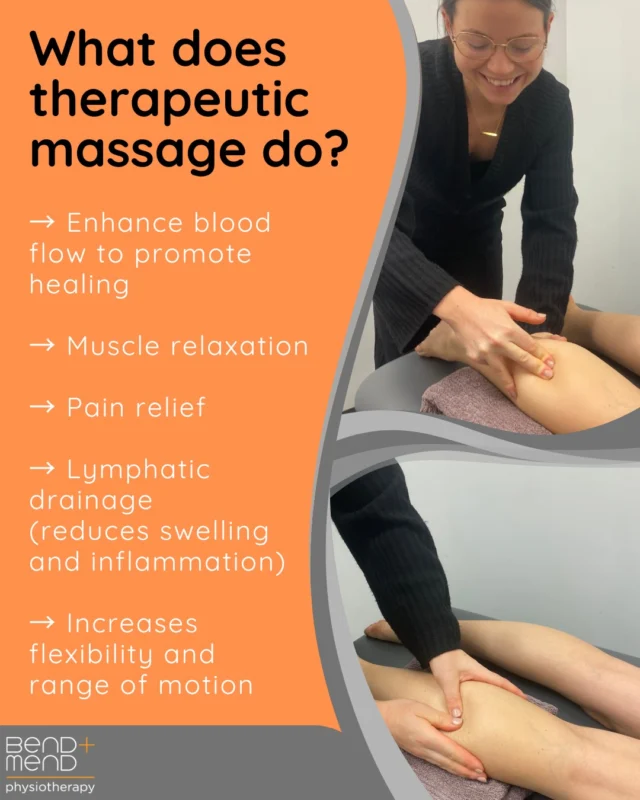Bend + Mend Pregnancy Physiotherapy
What is Prenatal Physiotherapy?
Prenatal physiotherapy is a service that offers the treatment, management and rehabilitation of specific conditions that arise during pregnancy. During pregnancy, your body undergoes growth and hormonal changes that result in the stretching of abdominal muscles and ligaments, alongside the increased pressure on your pelvic floor muscles.
Accordingly, pregnancy physiotherapy focuses on preventing and treating pregnancy symptoms such as back pain, pelvic girdle pain, sacroiliac joint pain (SIJ), carpal tunnel syndrome and round ligament pain.
To ensure complete comfort, we also provide instructions to help self-manage your pain and advise safe exercise practices. Ultimately, these programmes can be tailored to assist in quicker recovery after birth or help you maintain a normal exercise routine.
What is Postnatal Physiotherapy?
Postnatal physiotherapy involves helping women recover and rehabilitate muscle function following childbirth. All postnatal women (regardless of the delivery method) require guided rehabilitation to ensure their bodies effectively recover from birth.
We recommend a 6-week postnatal physio check to assess pelvic floor function and abdominal separation, advising when/how to return to exercise. However, any woman can benefit from postnatal physiotherapy treatment, including those who may have had their baby a long time ago.
Bend + Mend Pregnancy Physiotherapist
Our pre- and postnatal physiotherapists have completed specialised training in women’s health issues.
Fiona Godsall and Kellie Jansen started Bend + Mend’s pregnancy service, establishing our clinic as one of the most trusted Sydney CBD centres to holistically treat prenatal and postnatal conditions.
Our Women’s Health Team consists of Alle Foster, who has completed further specialised training in Women’s Health and has a special interest in physiotherapy treatment and pilates for pre- and postnatal women.
There is no specific Medicare cover for pregnancy or postnatal physiotherapy. However, you may be entitled to receive five (5) Medicare-rebatable physiotherapy treatment sessions each year under the Medicare Team Care Arrangement (previously called EPC). You will need to speak to your GP about this but we’re happy to help answer any questions that you may have.
What to Expect
Prenatal Assessment & Treatment
In your first appointment, one of our experienced physiotherapists will conduct a private consultation, asking about your medical history and other pregnancy-related questions (due date, birthing plans and treatment goals).
We also will conduct a thorough physical examination which includes an objective pelvic floor assessment to diagnose any condition you may have. For more information on our assessment process, check out our resource page here. Following this, your physio will design and discuss a personalised treatment plan that includes strengthening and stretching exercises for pain relief. Whether you’re in the first, second or third trimester, all pregnant women can benefit from controlled exercise to help manage specific conditions.
During this treatment period, Bend + Mend works closely with Sydney obstetricians to ensure prompt communication with those involved in your care, guaranteeing that your conditions are treated effectively.
Postnatal Assessment & Treatment
Our appointments are always open for mums and babies to come together! Like a prenatal consultation, first appointments start with a postnatal physical examination to assess your abdominal muscles and pelvic floor function.
Following a discussion with your physiotherapist, they will create a specific treatment plan that outlines specific exercises to help strengthen your pelvic floor and other muscles of concern. If you would like to know more about our postnatal assessment process, head to our guide here.
Bend + Mend’s years of experience in dealing with postnatal conditions make us confident in knowing your body’s capacity to handle strengthening exercises and treatment.
How Does Pregnancy Physiotherapy Help?
Prenatal Conditions
- Lower Upper Back Pain: The joints and muscles in the spine are loaded more during pregnancy, with your growing baby pushing against a stiffer spine. A Bend + Mend prenatal physiotherapist treats back pain using hands-on manual therapy, soft-tissue therapy to ease pain, and individual exercises to prevent a recurrence.
- Pelvic/Sacroiliac Joint Pain: Pregnancy hormones and increased ligament laxity can make the pelvic joints less stable and more painful. Physiotherapy can help correct this through manual therapy and abdominal muscle retraining. Sometimes we also fit you with a pregnancy belt if this is shown to ease your pain.
- Round Ligament Pain: As your muscles stretch and grow around the belly, you may experience pain in the round ligaments that support the uterus and attach the front of the womb to the groin. Our Physiotherapists will teach you techniques to manage this pain and prescribe exercises that help to offload the ligaments.
- Abdominal Separation (Diastasis Recti): Abdominal separation, also known as diastasis recti, is when the connective tissue in the midline of the stomach muscles stretches to accommodate a growing baby. At Bend + Mend, we measure the amount of separation you may have and guide you through the best exercises to manage separation during pregnancy. This may include deep core and pelvic floor strengthening.
- Carpal Tunnel Syndrome: During pregnancy, swelling in the hands can put pressure on the median nerve where it travels through the carpal tunnel, causing pain and numbness/tingling. Your physiotherapist will aim to reduce the swelling and take the pressure off the nerve using soft-tissue therapy, exercises, and sometimes a night splint.
Postnatal Conditions
- Pelvic Floor Weakness: During pregnancy and birth, the pelvic muscles stretch and widen, significantly affecting their function throughout the postnatal period and later in life. Our physiotherapists are trained in postnatal care, including assessing and rehabilitating pelvic floor muscles.
- Urinary Incontinence: A weak pelvic floor is commonly the cause of incontinence after childbirth, but it can be strengthened like any other muscle. Our Physiotherapists can show you exercises performed in lying positions and later progressed to upright positions to improve your symptoms.
- Postnatal Abdominal Separation (Diastasis Recti): After birth, you no longer need the widening of the connective tissue in the midline of the stomach muscles. Our Physiotherapists know when it is time to start abdominal muscle rehabilitation after birth. We will take you through a safe abdominal programme.
- Pelvic Organ Prolapse: Pelvic organ prolapse (POP) is the falling down of any organs in the pelvic cavity, such as the bladder, bowel or uterus. It is more common after childbirth. At Bend + Mend, we can teach you better habits to avoid pressure and pushing down the organs. It is important to be shown how to achieve a proper pelvic floor lift.
Pregnancy Physio Near Me in Sydney CBD
Pregnancy and the postnatal period are a period of anticipation and joy. As your body changes, you may come to question your overall well being and muscle function. That’s why Bend + Mend created our pregnancy-orientated service to ensure you’re confident in your body’s ability to function at every stage, starting in the first trimester up until postpartum.
We have two locations at Martin Place, and Darling Park making it easy to find us wherever you are in Sydney’s CBD. There is no need to put up with back and pelvic pain, pelvic floor weakness, or just not knowing how and when to exercise safely. Come and see us so we can help you to feel your very best during pregnancy and as a new Mum.
Frequently Asked Questions
Is physio safe during pregnancy?
Yes. Physiotherapy during pregnancy is completely safe and is guided by a qualified and experienced physiotherapist. Our physiotherapists can prescribe specific exercises that guarantee you and your child’s safety.
When should a pregnant woman start physiotherapy?
The earlier, the better! Being proactive about your body during pregnancy is a great way to ensure that you can have a comfortable pregnancy.
How long is the postnatal period?
It’s approximately six weeks following birth. However, some pregnancy-related conditions can outlast this period for quite a few months. Therefore, any woman suffering from postnatal conditions can benefit from our service.


